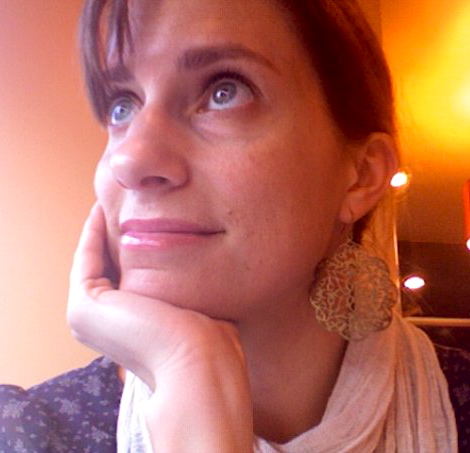Discovering Narrative Inquiry
Josette LeBlanc

I have a craving to learn. Part of this craving is satisfied by writing about teaching and learning here on the iTDi blog as well as on my blog, and also by talking with my inspiring community of teachers, but sometimes I think I need more. I think of working towards a PhD. The idea of diving deep into my topics of interest – how reflective practice and compassionate communication intersect in teacher education – seems like it would satiate my appetite. However, my research into research methods always left a bad taste. I just couldn’t imagine myself crunching numbers. My areas of interest seem to be beyond equations (re: quantitative methods), and too big for what I understand about action research. Then finally, this part of my search was over.
After class one day, my colleague, Darryl Bautista, and I were talking about research, and I told him about my distaste. This was when he told me about his professional experience with narrative inquiry as an approach. And just like that, the world of research opened itself to me. What follows is a description of where my ongoing research begins: in discovering narrative inquiry.
Discovering narrative inquiry was a big deal. Maybe like many of you, I have a math phobia. Perhaps part of the reason why I never connected to math was that it was never introduced to me as something that connected to the juiciness of life: the things that make life worth living like love, joy, and all the complexities of being human. Now that I am older, and thanks to the storytelling skills of scientists such as Carl Sagan, Brian Greene, and Leonard Mlodinow, I can see how equations and life are one in the same. And this is the point; I needed to hear a story in order to connect to their research. The language they use – numbers — and the language that I use – words that describe experiences — although interconnected, paint very different pictures. Via the language of a lived experience, numbers turned into stars, nature, and human relationships.
This is what narrative inquiry does: it uses the story process to make sense of an experience. As professors of education, and the authors of Narrative Inquiry: Experience and Story in Qualitative Research, D. Jean Clandinin and F. Michael Connelly explain it:
Narrative inquiry is a way of understanding experience. It is a collaboration between the researcher and participants, over time, in a place or series of places, and in social interaction within milieus. An inquirer enters this matrix in the midst and progresses in this same spirit, concluding the inquiry still in the midst of living and telling, reliving and retelling, the stories of the experiences that make up people’s lives, both individual and social. Simply stated, (…) narrative inquiry is stories lived and told. (p.20)
Another point that piqued my interest about narrative inquiry was this concept of collaboration between the researcher and participants. As a strong proponent of reflective inquiry as a way to develop myself personally and professionally, I knew that any research worth doing would have to begin from my experiences. Although narrative inquiry values a balanced account of what happens for the researcher and the participants during the research process, the researcher’s voice is not diminished. In fact, this may be where it begins.
Such inquiry is driven by teachers’ inner desire to understand that experience, to reconcile what is known with that which is hidden, to confirm and affirm, and to construct and reconstruct understandings of themselves as teachers and of their own teaching. What teachers choose to inquire about emerges from their personalities, their emotions, their ethics, the contexts, and the overwhelming concern for their students. (Johnson & Golombek, p.6)
And so this is where my research begins. I will look back at the themes I discover in my teaching story (via my blog posts, emails, and journals) as a way of looking forward into possible research: into understanding my experience and how it relates to teaching at large. What I have already found are themes that speak to the juicy craving I mentioned. Narrative inquiry is my first step into ongoing research which has yet to reveal itself to me.
Reference:
Clandinin, D.J., & Connelly, F.M. (1999). Narrative Inquiry: Experience and Story in Qualitative Research. San Francisco, USA: Jossey-Bass Inc.
Johnson, K.E. & Golombek, P.R. (2002). Teachers’ Narrative Inquiry as Professional Development. Cambridge, UK: Cambridge University Press.
Connect with Josette and other iTDi Associates, Mentors, and Faculty by joining iTDi Community. Sign Up For A Free iTDi Account to create your profile and get immediate access to our social forums and trial lessons from our English For Teachers and Teacher Development courses.


I wonder if Narrative Inquiry is related at all to Appreciative Inquiry? I have a little book about that. I suppose that would be a Hetaira’s way of getting in to research: understanding peoples’ stories.
I was having a discussion with an Astrophysicist about supernovas, telling him my “story” of how / why they… rip apart, outshining 100 billion other stars for a while… and he thought that it didn’t work for him. But he said, “we can’t get the computer models to explode.” I said that was because he wasn’t understanding how Neutrinos make it happen. My “story” worked, his “computational model” did not.
But see, I got the story from a magazine article decades ago. I thought everyone already knew that. Maybe he needs to do some research. What the heck else are neutrinos for???